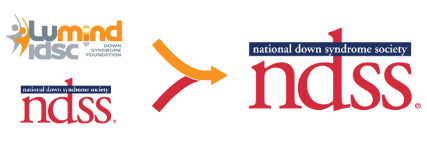New trans-NIH Down Syndrome Initiative aims for scientific discoveries to improve the health and neurodevelopment of individuals with Down syndrome
LuMind™ Research Down Syndrome Foundation (LuMind RDS) joins other Down syndrome organizations in applauding Congress on including a major milestone for Down syndrome research as part of the final Fiscal Year 2018 Omnibus Appropriations legislation, which was signed by the President today. This legislation calls for the establishment of the trans-NIH Down Syndrome Initiative to increase collaboration among the various institutes (including NICHD, NIA, and NCI) to study Trisomy 21. The aim of the initiative is to yield research discoveries to improve the health and neurodevelopment of individuals with Down syndrome and typical individuals at risk for Alzheimer’s disease, cancer, cardiovascular disease, and autism, among others.
“By instructing the NIH director to establish this initiative, Congress has shown a strong commitment to improving the health and independence in individuals with Down syndrome,” said Hampus Hillerstrom, President and CEO of LuMind RDS, “We commend Representatives Cathy McMorris Rodgers, Pete Sessions and the members of the Appropriations Subcommittee for advancing this important initiative.”
According to Hillerstrom, discoveries from the last decade of research have advanced the understanding of how the extra copy of chromosome 21 affects individuals with Down syndrome and there is a lot of promising research that, with an increased partnership with the NIH, cold move towards clinical trials to benefit children and adults with Down syndrome. This additional funding provided through the trans-NIH initiative help accelerate development in many of the research areas focused on Down syndrome today. “At LuMind RDS, we are excited to stand with many other Down syndrome organizations, self-advocates, and the research investigators who supported this effort and share this historic policy development with families and all who care for a loved one with Down syndrome,” explains Hillerstrom.
LuMind RDS is focused on four scientific research areas to meaningfully improve independence and health for all individuals: prevent Alzheimer’s onset, improve cognition, develop gene therapies, and advance understanding. The Foundation provides grants to groundbreaking projects at top academic institutions, collaborates with public agencies, other Down syndrome organizations and the pharmaceutical industry to rapidly advance new treatments for individuals with Down syndrome.
To learn more about LuMind RDS research, visit www.LuMindRDS.org/research-strategy or email [email protected].
# # #
About LuMind Research Down Syndrome Foundation:
LuMind Research Down Syndrome Foundation is dedicated to meaningfully improve health and independence in people with Down syndrome through cutting-edge science. Established in 2004, we have invested $17M in research at top academic institutions and biopharmaceutical companies leading to substantial concurrent funding from the NIH, industry and other sources. LuMind RDS-funded research has led to the discovery of 10 therapeutic targets, the development of 2 Down syndrome-specific cognitive assessment scales, the conduct of 14 interventional and observational clinical trials in 1300 participants and the initiation of several consortia.
